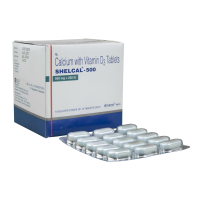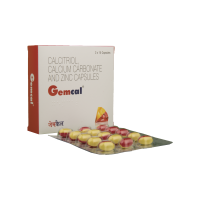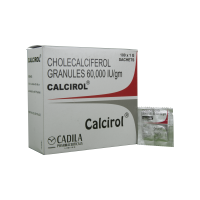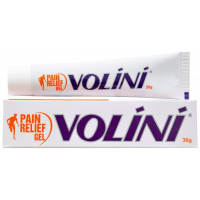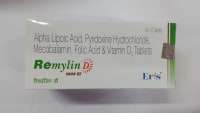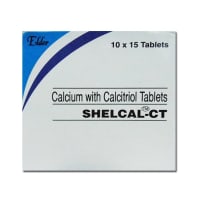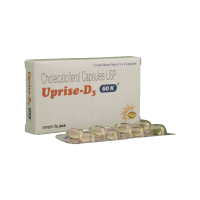NOTICE: unsafe with : Alcohol
USED FOR:
Gout
COMPOSITION:
Febuxostat (80mg)
Therapeutic Uses:
pain analgesics

CAUTION
Taking alcohol can increase your uric acid levels and hence aggravate gout.

WEIGH RISKS VS BENEFITS
Feboxa 80mg Tablet may be unsafe to use during pregnancy.Animal studies have shown adverse effects on the foetus, however, there are limited human studies. The benefits from use in pregnant women may be acceptable despite the risk. Please consult your doctor.

CAUTION
Feboxa 80mg Tablet is probably unsafe to use during lactation. Limited human data suggest that the drug could represent a significant risk to the baby.

Do not drive unless you are feeling well.Feboxa 80mg Tablet may cause dizziness, sleepiness, blurred vision, numbness or tingling sensation. This may affect your driving ability.

Feboxa 80mg Tablet should be used with caution in patients with severe kidney disease. Dose adjustment of Feboxa 80mg Tablet may be needed. Please consult your doctor.Limited information is available regarding the use of Feboxa 80mg Tablet in these patients.

Feboxa 80mg Tablet should be used with caution in patients with severe liver disease. Dose adjustment of Feboxa 80mg Tablet may be needed. Please consult your doctor.Limited information is available regarding the use of Feboxa 80mg Tablet in these patients.
Uses of Feboxa Tablet
Feboxa 80mg Tablet is used in the treatment of gout.
How to use Feboxa Tablet
Take this medicine in the dose and duration as advised by your doctor. Swallow it as a whole. Do not chew, crush or break it. Feboxa 80mg Tablet may be taken with or without food, but it is better to take it at a fixed time.
How Feboxa Tablet works
Feboxa 80mg Tablet is a xanthine oxidase inhibitor. It works by decreasing blood uric acid, which is the chemical that causes gout.
Common Increased liver enzymes, Diarrhoea, Headache, Nausea, Skin rash.
Expert advice for Feboxa Tablet
Your doctor has prescribed Feboxa to reduce episodes of gout attack. Take Feboxa at the same time every day, with or without food. Take plenty of fluids (2-3 litres) daily while on Feboxa. Notify your doctor if you develop a rash. This could be a sign of allergy and should go away on discontinuing Feboxa. To ensure that Feboxa is working, you may have to undergo blood tests regularly. When you first start taking Feboxa, you might have more gout attacks. Do not stop Feboxa on having an acute attack of gout as that could make an attack worse.
Q. Can I take Feboxa with rosuvastatin?
Rosuvastatin can be taken with Feboxa. Rosuvastatin is used to lower bad cholesterol and Feboxa is used to lower uric acid levels in patients with gout. Many patients of high cholesterol levels also have high uric acid levels. There are no human studies available on this interaction. However, animal research shows that when given together, Feboxa can increase the blood levels of Rosuvastatin causing a higher risk of its side effects like muscle pain and muscle damage. So, a dose adjustment of Rosuvastatin may be needed when given along with Feboxa.
Q. Does Feboxa cause frequent urination?
Feboxa is not known to cause frequent urination. However, if you experience any such symptom while using the drug, consult your doctor.
Q. How does Feboxa work for the treatment of gout?
Gout is a type of arthritis in which uric acid levels are very high in the blood and they get deposited in the joints causing swelling, redness and sudden pain in these joints. Feboxa works by inhibiting the enzyme xanthine oxidase involved in the synthesis of uric acid and hence decreases the level of uric acid in the blood.
Q. Is Feboxa a steroid?
No, Feboxa is not a steroid. It is a xanthine oxidase inhibitor and decreases the serum uric acid levels.
Q. Is Feboxa useful in lowering the triglyceride levels?
Feboxa is not indicated for the treatment of hypertriglyceridemia. Conclusive evidence showing the drug lowering triglyceride levels is lacking.
Q. How long does Feboxa take to work?
After oral intake, the peak plasma concentration of Feboxa is achieved between 1 to 1.5 hours. However, it may take a few days to weeks to show its effect and you can experience gout attacks during this time. Continue to take your medicine during this time as with continuous use these attacks would decrease.
Q. Is Feboxa an over the counter product?
Feboxa is not an over the counter product. It is a prescription medicine and is available as per the doctor's advice.
Q. Is Feboxa safe to use for a long time?
Studies have shown that Feboxa is safe for long-term use. However, it should be taken only for the duration as per the doctor's advice.
Q. Can Feboxa be used for the treatment of heart failure?
Feboxa is not indicated for the treatment of heart failure. However, high uric acid levels is a risk factor for cardiovascular diseases and the benefit of urate-lowering therapy for cardiac diseases is being explored.
Q. Is Feboxa useful for treating chronic kidney disease?
Feboxa is not indicated for the treatment of chronic kidney disease. However, it can be safely used in patients with mild to moderate renal failure for lowering uric acid levels. Safety of the drug in severe renal failure is not established.
Q. Can I use Feboxa for cancer?
Feboxa is not used for the treatment of cancer. However, patients with malignant cancer when given anti-cancer drugs, experience a serious condition known as tumor lysis syndrome characterized by increased potassium, phosphate and uric acid levels in the blood due to the killing of cancer cells and this can lead to acute kidney injury, cardiac arrhythmia, and seizures. Feboxa helps in this condition by lowering the uric acid levels and preventing further complications.
Q. Can I take Feboxa with allopurinol?
Both Feboxa and allopurinol are uric acid lowering agents and work in a similar way. So, using both the two medicines together may not be very beneficial and can increase the risk of side effects. However, there have been studies where Feboxa when used with allopurinol in patients with refractory gout, was quite effective in providing relief. So, a combined use would be best decided by your treating doctor depending on your condition.
Q. Is Feboxa useful for treating kidney stones?
Feboxa is not indicated in the treatment of kidney stones. However, some studies show that high renal uric acid excretion may precipitate the formation of calcium stones in the kidney and hence, suggest Feboxa may have a role in the reduction of stone formation.
Q. Can I take Feboxa with colchicine?
Feboxa can be taken with colchicine. In the initial few days of starting Feboxa, patients may experience an increase in gout attacks because of the movement of uric acid and colchicine and painkillers are given to these patients for the relief of pain and inflammation.
Q. Can I take Feboxa with azathioprine?
Feboxa should not be taken with azathioprine. Taking both the medicines together will increase the levels of azathioprine and can cause toxicity.
Q. Can I take Feboxa with antibiotics?
Feboxa can generally be taken safely together with antibiotics. However, interactions can occur. Talk to your doctor about the right antibiotic therapy for your condition while you are also taking Feboxa.
Q. What are the contraindications to the use of Feboxa?
Use of Feboxa is contraindicated in patients being treated with azathioprine, mercaptopurine, theophylline, and in patients who develop hypersensitivity to the drug.


 Feboxa 80mg Tablet
Feboxa 80mg Tablet  Bookmark
Bookmark
